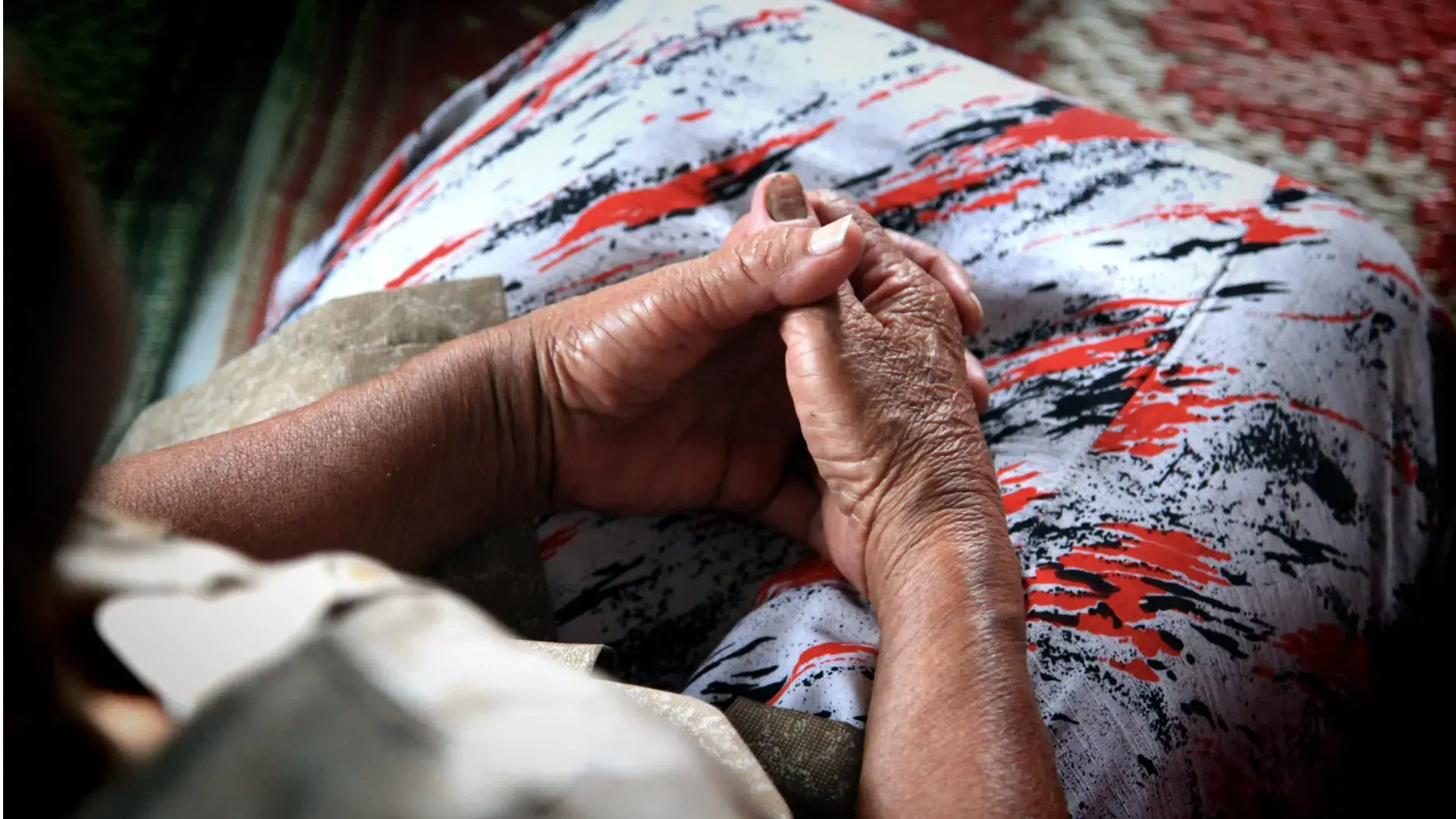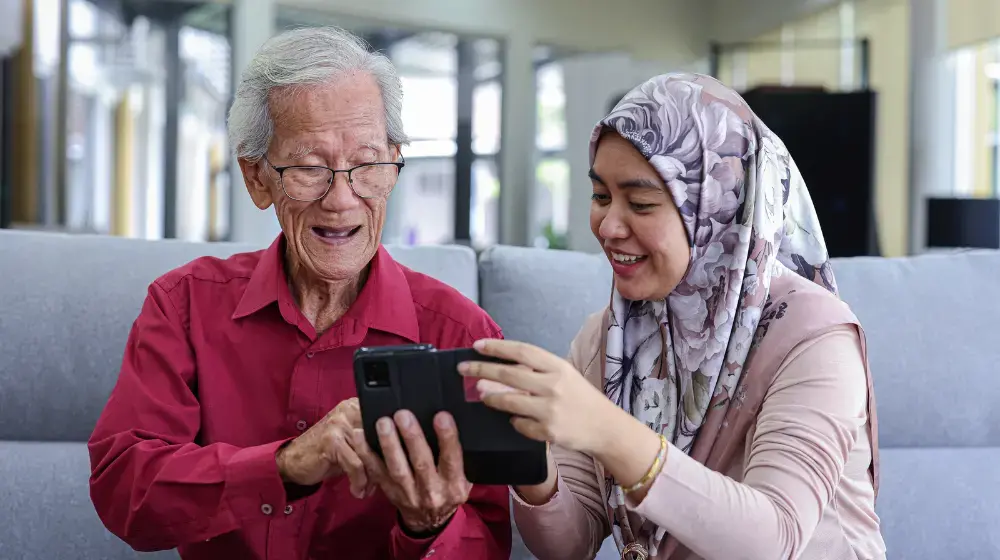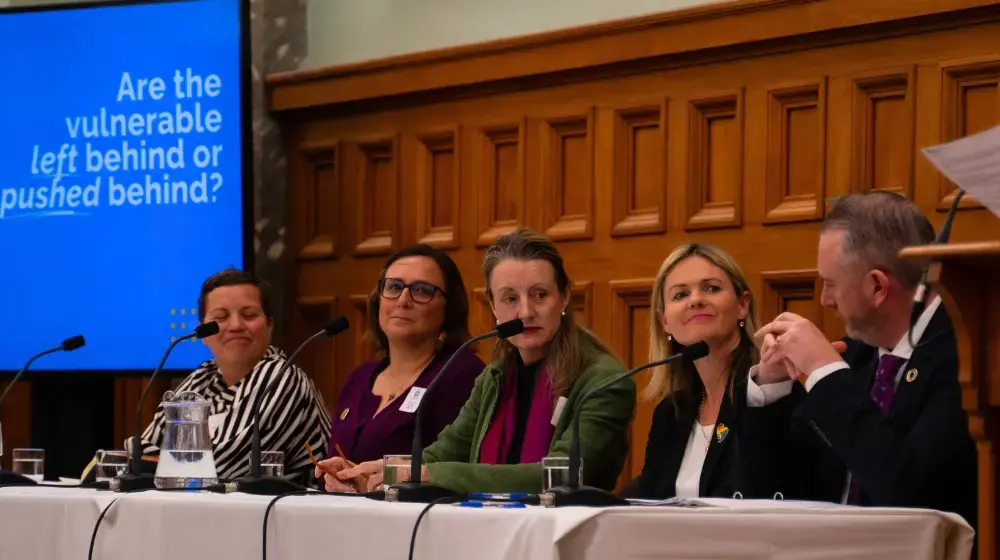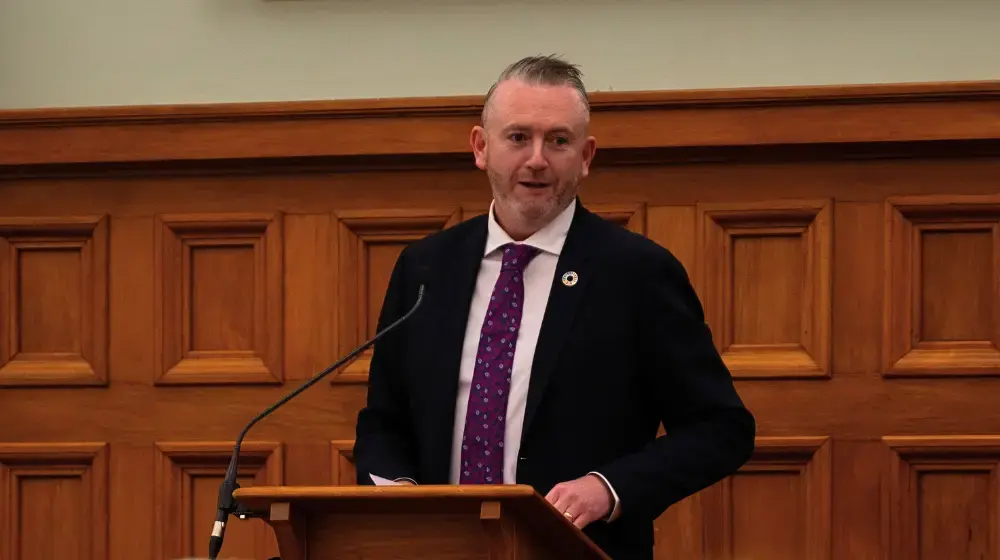Innovating for the elderly in Central Sulawesi
Innovating for the elderly in Central Sulawesi
Dewi Rana is the Director of Yayasan Libu Perempuan, a non-governmental organization working for women’s rights in Indonesia. Like everyone in Central Sulawesi, Dewi’s life was transformed when the earthquake and tsunami devastated her region in September 2018. While dealing with the aftermath herself, Dewi went to work as part of the response. Working with vulnerable groups such as new mothers connected her to the community, and she soon found that older people were also at risk. The innovations for the elderly that Dewi helped lead are now being woven into the region’s COVID-19 response.
Being from disaster-prone Central Sulawesi, Dewi had lived through previous emergency situations. “When I was young, I experienced disasters,” she says. “But they were small disasters – earthquakes, floods, landslides.” Dewi says that nothing could prepare her for what they experienced on 28 September 2018. “It happened on Friday, just approaching night-time. It was really big and it was strong.”
Large parts of the province were immediately flooded following the 7.5-magnitude earthquake. “It was scary because the lights suddenly turned off,” Dewi remembers. “No electricity, no lighting, and then people started to panic.”
“It was scary because the lights suddenly turned off. No electricity, no lighting, and then people started to panic.”
Everyone knew that the tsunami was imminent and it was a life-and-death race to reach safety on higher ground. “They were leaving their houses,” she recalls. “People were fleeing their homes.”
Dewi evacuated as well and made it to a safe area nearby with her family. They watched in horror as the devastation continued. “This really was an extraordinary disaster,” she says.
While coping with the aftermath, Dewi went straight to work as a women’s health volunteer, because she knew that the need would be enormous.“Within days of the disaster, several UNFPA staff came here to Palu,” she says. “Just five days after the earthquake, we were able to set up the reproductive health tent and the women-friendly space.”
“Just five days after the earthquake, we were able to set up the reproductive health tent and the women-friendly space.”
Dewi credits the close collaboration between health officials and the Ministry of Women’s Empowerment and Child Protection, as well as the Ministry’s local department in Central Sulawesi, with helping to ensure a quick response.
She says that the first step was to try to get a sense of how many people needed support and where they were. “We surveyed all the displaced people in areas that were most affected by the disaster,” she says. “Then we built women-friendly spaces where they were needed most.”
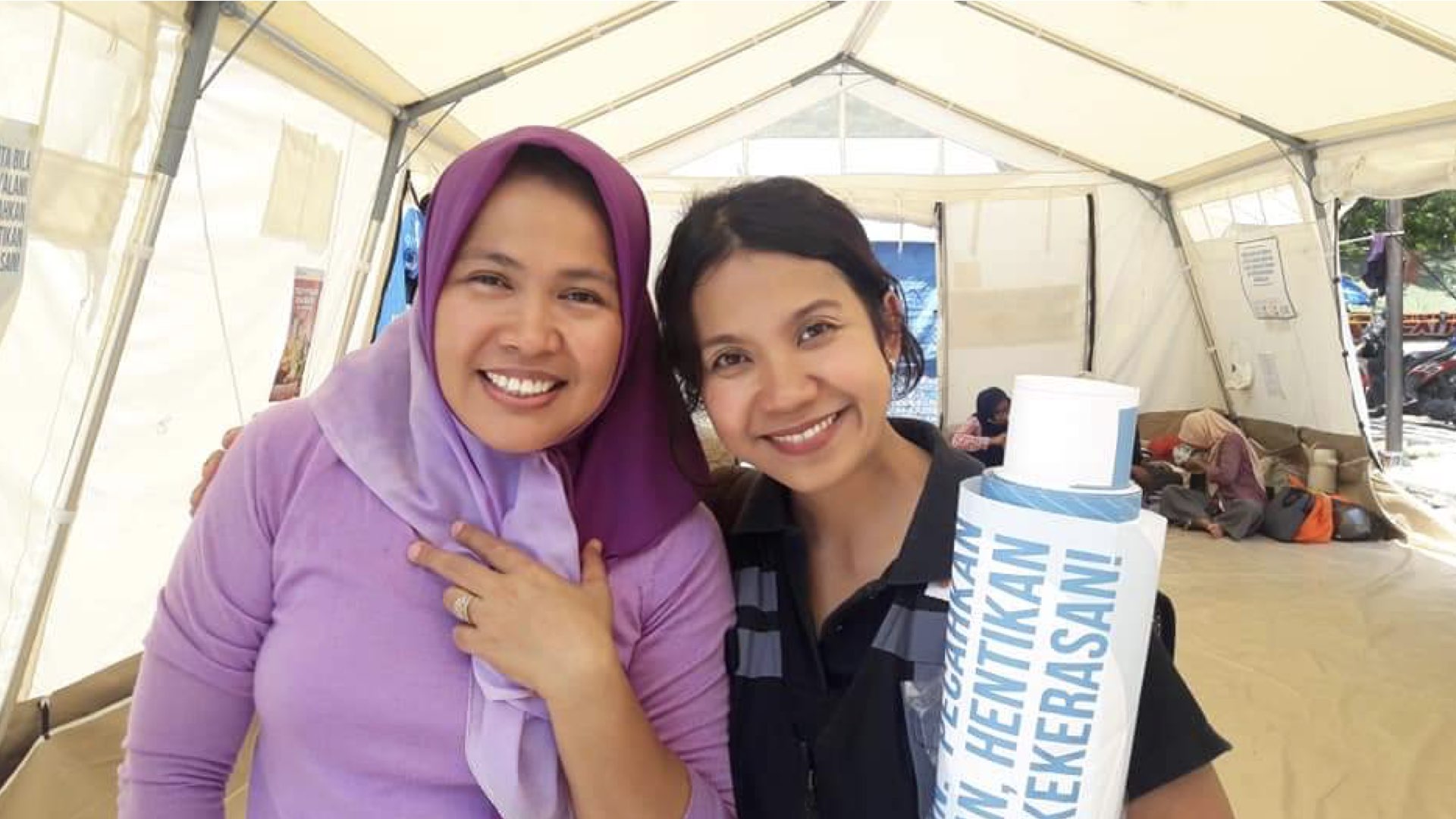
Dewi admits that the scale of the destruction was overwhelming during the first weeks. “I didn’t understand how to cope with a disaster like that,” she recalls, “but after we built the women-friendly spaces we were able to understand.”
UNFPA helped set up 12 women-friendly spaces as part of the Central Sulawesi response. Tents, supplies and technical assistance were funded by Australia and the United Nations’ Central Emergency Response Fund.
Dewi saw how these tents in hotspots of displaced and vulnerable communities became focal points for all kinds of connections. They gave health teams insights into other groups in the community who needed more support. “We began to see how women, children and the elderly living in temporary shelters are especially vulnerable.”
“We began to see how women, children and the elderly living in temporary shelters are especially vulnerable.”
Dewi worked with a team of 30 volunteers in the 12 women-friendly tents. She says life was hard for everyone. “It felt like a dead city,” she recalls. “It was difficult to find food. Shops were being looted. Drinking water was difficult to get.”
Dewi says that this breakdown in systems was extremely dangerous for older people. “At that time, all services were disrupted,” she says. “There was no phone, no clean water, no safe houses. All these things were destroyed.”
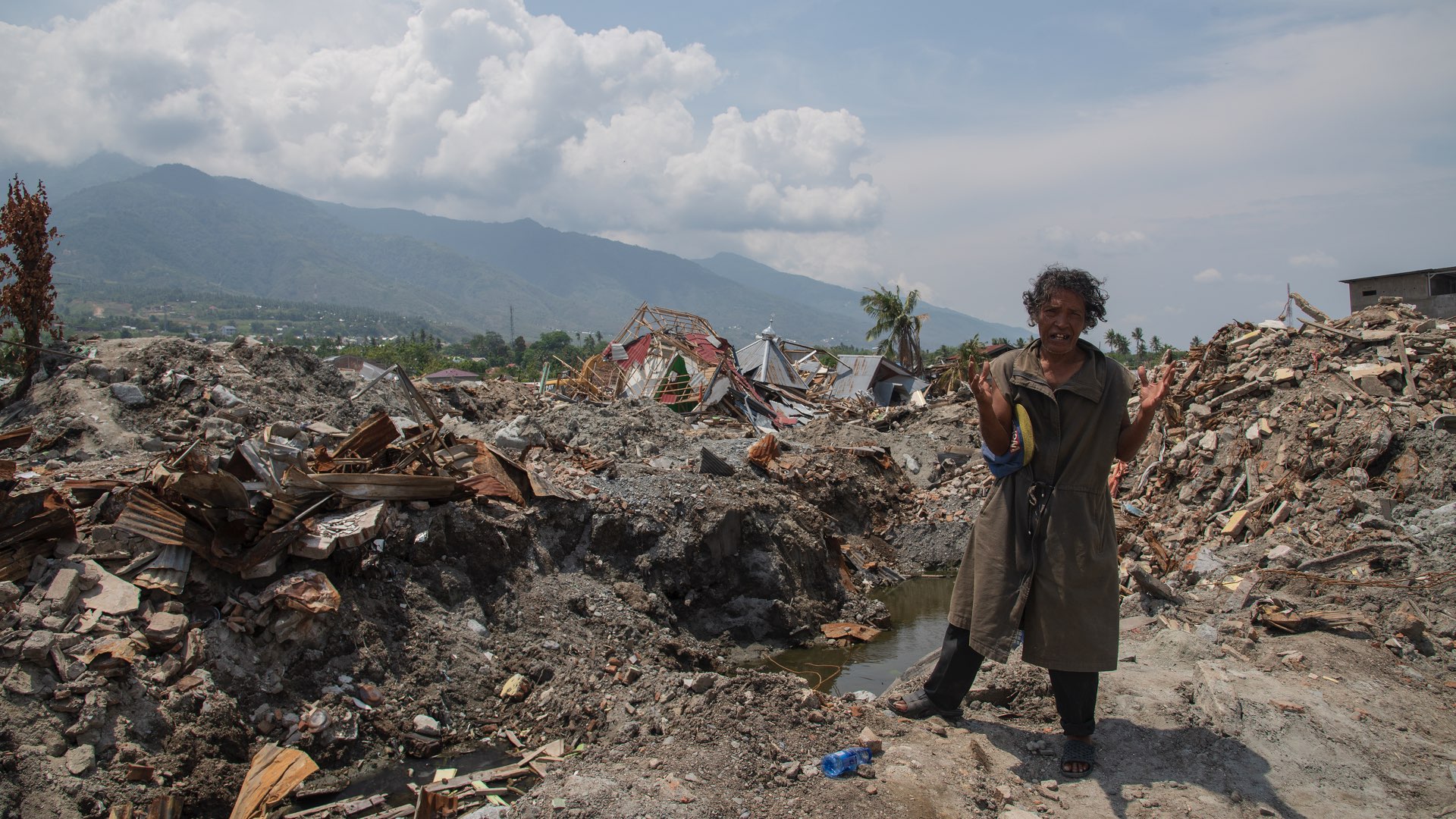
The tents became an island of normality in a sea of chaos and suffering. They started by providing health services and then evolved into hubs for outreach and data collection as part of cluster-mapping systems. “We were mapping how many pregnant mothers and how many women needed services. During our data collection and our mapping, we found out how many elderly people were living in certain tents and how many children.”
Dewi and the other health volunteers were at the front line of a humanitarian crisis, dealing with the full spectrum of issues, including maternal health, mental health, sexual violence and elderly care.“The elderly, pregnant women and breastfeeding mothers – it’s not high numbers,” she says. “But it’s about human rights and humanitarian principles.”
"It’s about human rights and humanitarian principles.”
As they strengthened the systems, Dewi and her colleagues realised they had to do more to support the elderly, but they lacked supplies. Dewi and the other volunteers began planning with UNFPA and partners to procure and prepare customized dignity kits for the elderly. She explains that the kits could be adapted based on need. “Everyone had different needs,” she says. “Some of the kits had glasses while others had a walking stick.”
Dewi says that the mapping they did early in the response made this kind of elderly care possible because they knew where the older people were and what they needed. “We found out from our mapping and data collection that some elderly people had been left behind by their families,” she says. “These older people weren’t living in the temporary shelters. Their children might have gone to live with other relatives and left them behind.”
Dewi remembers that it was deeply moving to visit these abandoned older people to deliver the dignity kits and help them to access more support. The kits opened a conversation about what other support the elderly people needed. To avoid referrals with uncertain outcomes, Dewi and her colleagues built on the relationships they had developed in the protection cluster meetings to raise the needs of specific people and get partners involved in the response, with case workers providing support.
“We found out from our mapping and data collection that some elderly people had been left behind by their families.”
The groundwork and relationships that began as a result of a mandate to provide reproductive health and women’s health services grew into a support system for elderly care. “We’re talking about the improvement of government services,” she says. “We didn’t have this system before.”
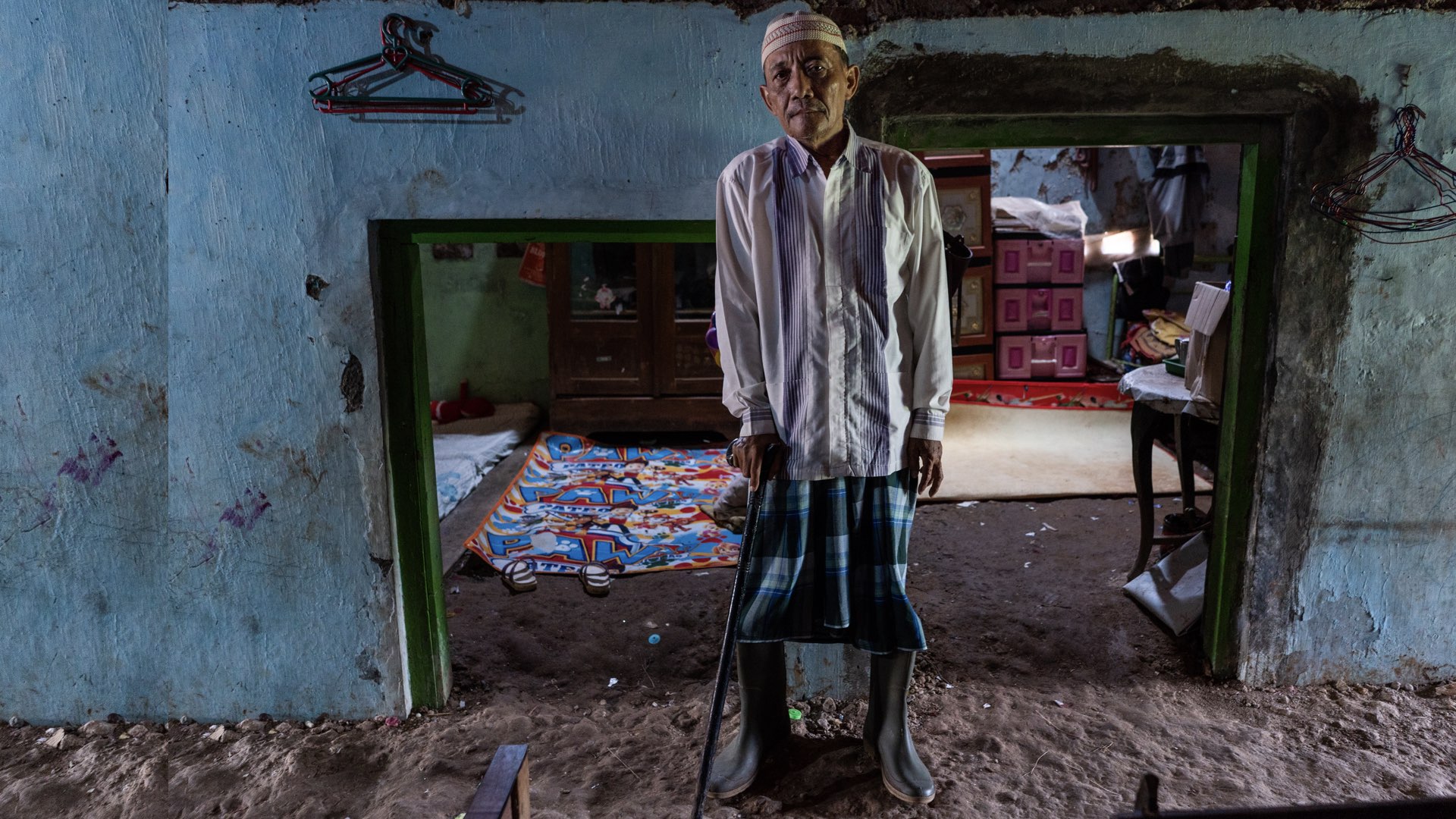
Dewi explains that the local health clinic is often the centre point of the community, so it was logical to make it a focal point in the humanitarian response, because that allowed health workers to connect with the community. “Local health clinics are the easiest places to access services and to report issues faced by these vulnerable groups,” she says. “We learned in the Sulawesi response to the 2018 disaster that we have to be ready to respond to their needs.”
“We’re talking about the improvement of government services. We didn’t have this system before.”
During the COVID-19 response, it was possible to build on experiences from the response to the earthquake and tsunami to respond quickly to the needs of women and older people. Between April and September 2020, through the women-led non-governmental organizations Yayasan Libu Perempuan and KPKPST, UNFPA provided 1,500 kits to older people and pregnant women to support them in the difficulties they faced during the COVID-19 emergency. During this period, UNFPA also provided vouchers to pregnant women and older people to ensure that they could access healthy food.
Learn more

